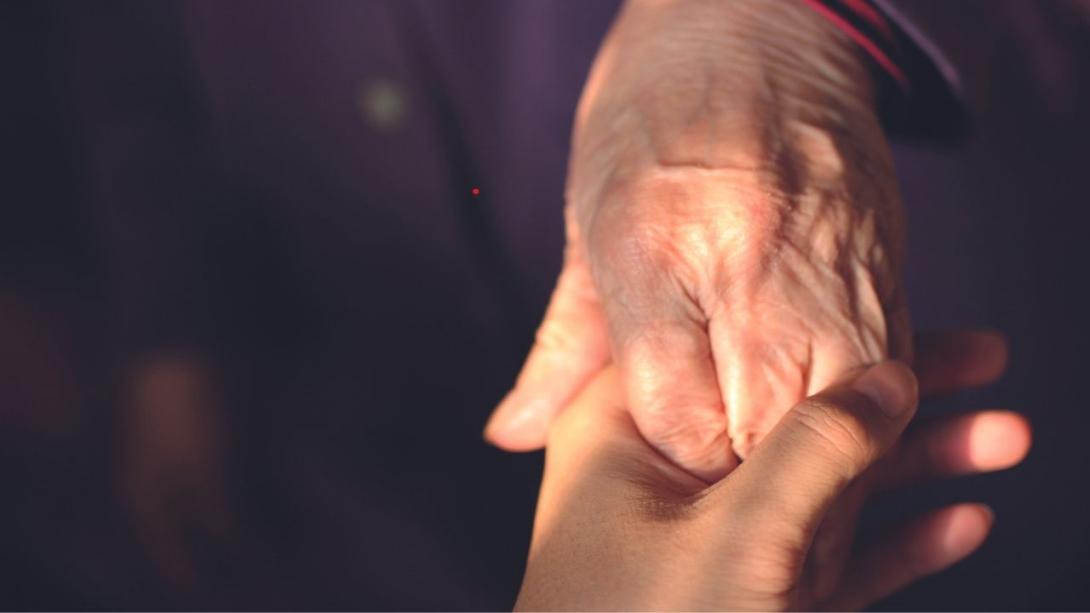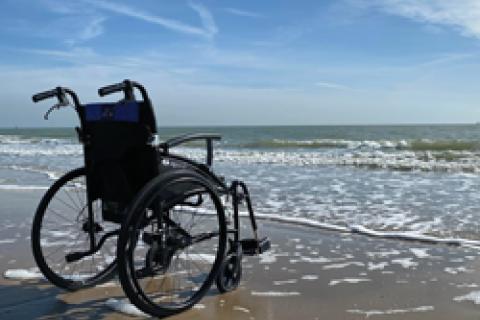
Photo by Hunt-Han | unsplash
Now that I am in my mid-80s, I have noticed how people are treating me differently from when I was younger. They often tell me how good I look, apparently trying to help me accept my aging. Or if they are elderly too, they ask about my illnesses, perhaps to provoke my questioning of them about their own health problems.
Conversations among us old guys often seem to turn into competitions over who has the most surgeries, the most therapies, the longest stays in the hospital. Not long ago I was talking with a man who said he is suffering from a debilitating spinal abnormality that requires the insertion of a long metal rod in his back; he also had a triple-by-pass operation on his heart, and now he has cancer. I think he will win the competition.
It is not easy to resist joining in such conversations, and I must admit that I have not been innocent since I too have my own list of painful ailments.
Sometimes I simply repeat what Focolare co-founder, Italian writer and politician Igino “Foco” Giordani said when asked, “How do you feel today?” He would answer with a winning smile, “Not so good—thank God!” This always struck me as the perfect Christian answer. I hope this will become clearer from my own experience, although I’m sure Giordani’s reasons were more profound and mysterious than mine.
Several times this year I have been asked, “How does it feel to be growing old?” My quick answer has been short and simple: “These last few years have been the happiest of my whole life.” My listeners’ eyes looked as if they were about to pop out, and their mouths dropped with surprise and even disbelief. So, I had to find something more to say.
I thought of Cardinal Van Thuan, who was imprisoned for 13 years, much of it in solitary confinement. He was able to write on scraps of paper that he smuggled out of prison:
“I have been happy and full of joy / because I have hope in the Lord / and I have learned to love.” (Road of Hope, p. 25)
I too “have been happy and full of joy.” And that it is “because I have hope in the Lord,” who matches every pain I have with an abundance of graces, and because “I have learned to love” much better than when I was younger and healthier.
As I get better in these relationships of love with Jesus and my neighbors, the strings of my soul seem to stretch until I’m in tune with all things and thus become very peaceful, and very happy.
God has given me the grace to be much more sensitive to what I can offer—both in my prayers and in my pains—for people around me. I spend my days now thinking about my family, my friends, and people who are suffering that I hear about in the news. I have been praying a lot for our new president, that God will give him a special grace of office to grow up to become a good leader.
I am learning to love a little better each day. These things make me happy because I have found more meaning in my life and more purpose in my pains.
Perhaps the greatest source of happiness comes when I realize the gift of participating in the passion of Jesus. Chiara Lubich has taught us how to unite our little sufferings with the enormous sufferings of Jesus in his passion, especially in his abandonment.
Moreover, Chiara has shown us something of greatest value: how we can say “Yes!” to whatever God sends us. We too can “fulfill what is lacking in the sufferings of Christ,” as St. Paul was doing with his own sufferings. (Col 1:24)
This always impressed me as one of God’s greatest gifts: to unite ourselves, our pains, to those of Jesus, so that we members of his mystical body can have a real participation in the redemption, and as sinners we can make our small but real contribution to our savior’s work of saving us. This is a great privilege that can make us “happy and full of Joy.” And when we say “Yes!” to painful experiences, we wind up closer to God and closer to our neighbors.
For instance, my neuropathy has lately been causing more pain in my hands. The thumbs and first two fingers have gotten so numb that I drop things and feel like I’m wearing boxing gloves. Trying to pick up a piece of paper or button my shirt is impossible, which makes me laugh because I used to be so handy. Now I need to call for help. To be true, I rely on help for everything.
For some strange reason, my two little fingers and palms still have feelings in them. At times, in the middle of the night, my hands can curl up from the sharp pain in my palms so that they look like claws. They feel as if nails have been pounded through them. This happened to me last night.
After struggling to find the light switch, I look up at a painting of Jesus in his passion. And I manage to say, “Yes!” with all my heart. I have never felt so close to Jesus, whose hands are also curled in pain. And something happens at these times that is hard to explain: the more I focus on his sufferings, the less I feel my own hands. And then my pains get weaker and go away—until they come another night.
In these moments I also try to offer my pains for the suffering people I have been praying for during that day. And as I get better in these relationships of love with Jesus and my neighbors, the strings of my soul seem to stretch until I’m in tune with all things and thus become very peaceful, and very happy.
One of the biggest temptations for older people is despair. As they get weaker and sicker, they start feeling discouraged, irrelevant, useless and alone. They see no future for themselves and lose all hope for recovery. Yesterday while I was visiting some patients in a nursing home, two of them told me stories of people they knew who could not face their illnesses and jumped out the window; one went right through the glass!
I thought about what I read that morning in Van Thuan’s The Road of Hope. One of the reasons the cardinal gives for loss of hope is underestimating our role in God’s plans.
Many Christians leave the work of redemption to God, failing to realize that he has entrusted this task to their collaboration.
The cardinal insists that lay people must help others struggle for salvation by sharing their own faith and by their prayers. He agrees that “salvation comes only from God,” but that we can “have an active cooperation in this work.” If each of us prays for our neighbors and helps them cultivate the virtue of hope, each becomes “God’s coworker.” God looks to such a person to complete his work of creation and redemption.
Chiara Lubich explained what I found so puzzling: “Pain has a paradoxical purpose: it is the channel to happiness.” She reminded us of the call Jesus made to all who would follow him: “Let them deny themselves and take up their cross and follow me.” (Mt 16:24)
“Just like Jesus, who through his suffering gave humanity joy here on earth and lasting joy in the next life, we too, by accepting the various kinds of anguish we experience and offering them each day with a supernatural spirit, can acquire happiness for ourselves and for others.” (Essential Writings, p. 89)
Each day I understand better what Igino Giordani was saying when people asked him how he felt and he responded, “Not so good—thank God!”
Thank God.












